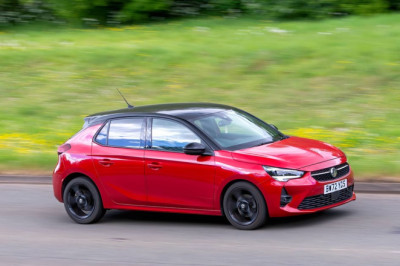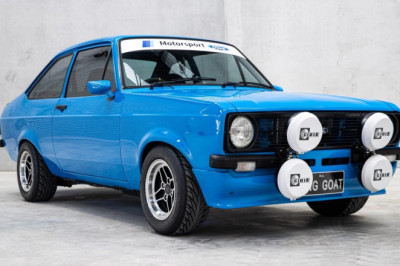
Renault's F1 Journey: From Turbo Pioneers to Mercedes Power
Renault's nearly half-century involvement in Formula 1 is drawing to a close, marking the end of an era that began with revolutionary turbo technology in 1977. The French manufacturer's tumultuous journey through the sport has seen it evolve from a full-fledged constructor to an engine supplier, and most recently, rebrand its efforts under the Alpine name. However, as the 2026 season approaches with new engine regulations on the horizon, Renault has made the decision to bow out of F1 entirely, concluding a 47-year legacy[1].
A Legacy of Championships and Innovations
Since 1992, Renault engines have powered an impressive 11 world drivers' championship victories. The company's crowning achievements came as a constructor, with Fernando Alonso clinching back-to-back titles in 2005 and 2006[2]. These successes solidified Renault's status as a formidable force in F1, showcasing their ability to compete at the highest level both as an engine supplier and a full team.
Renault's innovative spirit was evident from the start. In 1977, they introduced the radical turbo engine to Formula 1, a technology that would revolutionize the sport. The Renault RS01, despite initial reliability issues, paved the way for future success. Jean-Pierre Jabouille scored the first turbo-powered win in F1 history at the 1979 French Grand Prix, marking a significant milestone for Renault and the sport as a whole[1].
Recent Struggles and Declining Competitiveness
Following Sebastian Vettel's dominant run of four consecutive championships with Red Bull-Renault from 2010 to 2013, Renault's fortunes in F1 have waned. The partnership with Red Bull came to an end after the 2018 season, with the energy drink giant opting for Honda power. Renault's stint as McLaren's engine supplier also proved challenging, further highlighting the company's struggles to maintain competitiveness in the hybrid era[3].
Since the conclusion of the 2020 season, Renault power units have been exclusive to the Alpine team. This limited presence on the grid has hampered development and competitiveness. The inability to produce a winning engine, coupled with the lack of customer teams, has led to this pivotal decision to exit the sport[4].
The Shift to Mercedes Power
In a surprising turn of events, Alpine will transition to Mercedes power units starting in 2026. This move aligns the team with a proven winner in the current era of F1 and expands the Mercedes-powered contingent on the grid. Alpine will join Mercedes' works team, McLaren, and Williams in using the German manufacturer's powertrains[5].
This strategic shift serves dual purposes for Alpine. Firstly, it represents a significant cost-saving measure, allowing the team to redirect resources towards other areas of development. Secondly, and perhaps more crucially, it offers the potential to benefit from Mercedes' extensive R&D capabilities and shared data across eight cars on the grid, a substantial upgrade from the current two-car Renault-powered setup[6].
The Future of Viry-Chatillon
Renault's historic F1 engine factory at Viry-Chatillon will continue its operations until the end of the 2025 season. Following this, the facility will undergo a transformation, becoming a new engineering campus focused on developing technology for future Alpine and Renault road cars. Rumors suggest that this may include the production and assembly of a new Alpine-branded hypercar[7].
This transition raises questions about the future of the workforce at Viry-Chatillon. While Alpine's FIA World Endurance Championship program will continue, it may not be sufficient to sustain the personnel displaced from the Formula 1 power unit project[8].
Alpine's Current Performance and Future Prospects
The decision to switch engine suppliers comes at a time when Alpine is struggling to find its footing in the 2024 season. With just 13 points scored so far and a highest finish of 9th place (achieved four times), the team's performance is a far cry from their 2023 effort, which saw them accumulate 120 points and even secure a couple of podium finishes[4].
The move to Mercedes power in 2026 offers a glimmer of hope for Alpine's future competitiveness. However, the team faces a significant challenge in terms of timing. With work already well underway between Mercedes High Performance Powertrains (HPP) and its existing customer teams regarding the 2026 engine, Alpine finds itself potentially 6 to 12 months behind in development – a considerable disadvantage in the fast-paced world of Formula 1[8].
Conclusion: The End of an Era
As Renault prepares to exit Formula 1, it leaves behind a legacy of innovation, championship success, and technological advancements. From introducing turbo power to the sport to powering multiple world champions, Renault's impact on F1 is undeniable. While the decision to bow out marks the end of an era, it also signals a new chapter for Alpine as it aligns with Mercedes power.
The coming years will be crucial for Alpine as it navigates this transition, balancing the challenges of adapting to a new power unit with the potential benefits of partnering with a dominant force in F1 engine technology. As the 2026 season approaches, all eyes will be on Alpine to see how it leverages this new partnership to climb back up the competitive order and recapture the success that has eluded Renault in recent years.














